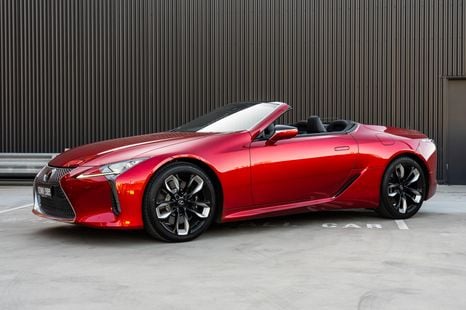

William Stopford
Sexy Lexus LC and its V8 living on borrowed time, but no end date set for Australia
7 Days Ago

Contributor
Ford Australia has confirmed the next-generation Mustang has been delayed until the first quarter of 2024.
A leaked Ford Australia bulletin had been posted online showing first deliveries of the seventh-generation pony car had been delayed until next year.
“Production for Australia-bound Mustangs is set to begin by late this year,” a Ford Australia spokesperson confirmed to CarExpert.
“Due to significant shipping time between the plant in Flat Rock, Michigan and Australia, we expect first arrivals in Q1, 2024.”
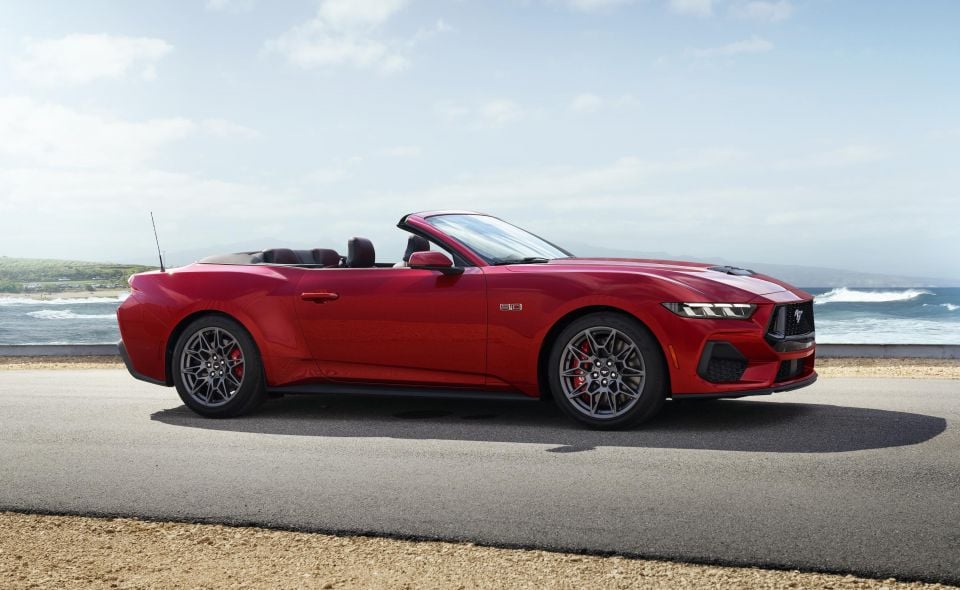
A member of the online forum Mustang 7G had posted a photo of the confidential Ford Australia bulletin outlining the updated timing for the new Mustang.
The document said pricing and specifications will be released by the end of June, with dealers to be informed of their allocations by the same time.
Previously Ford Australia has said that the first right-hand drive models will arrive towards the end of 2023.
It’s understood Ford will build its left-hand drive models first before beginning RHD production.

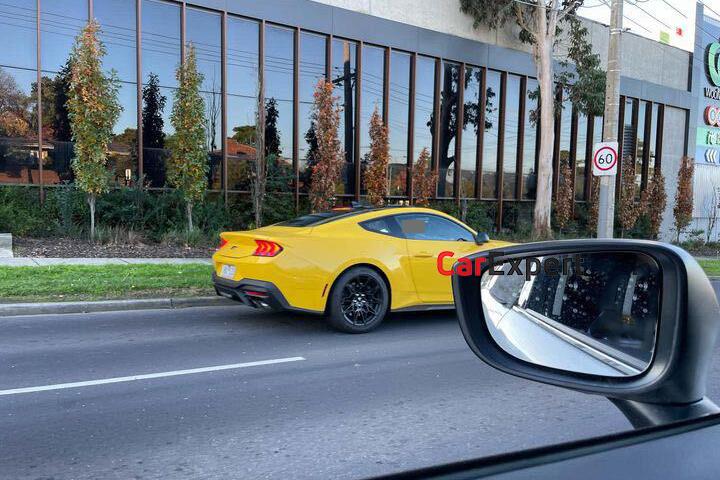
Ford Australia has yet to release any specifications of the upcoming model.
A yellow Mustang prototype was spied earlier this month testing on Melbourne, Australia roads which was photographed with updated headlights and tail lights.
The new tail lights now feature a three red segments with indicators at the bottom, as opposed to the clear-lensed tail lights of the outgoing Australian-market model.
The interior of the new Mustang receives a 13.2-inch infotainment touchscreen and 12.3-inch digital instrument cluster in one wraparound housing.
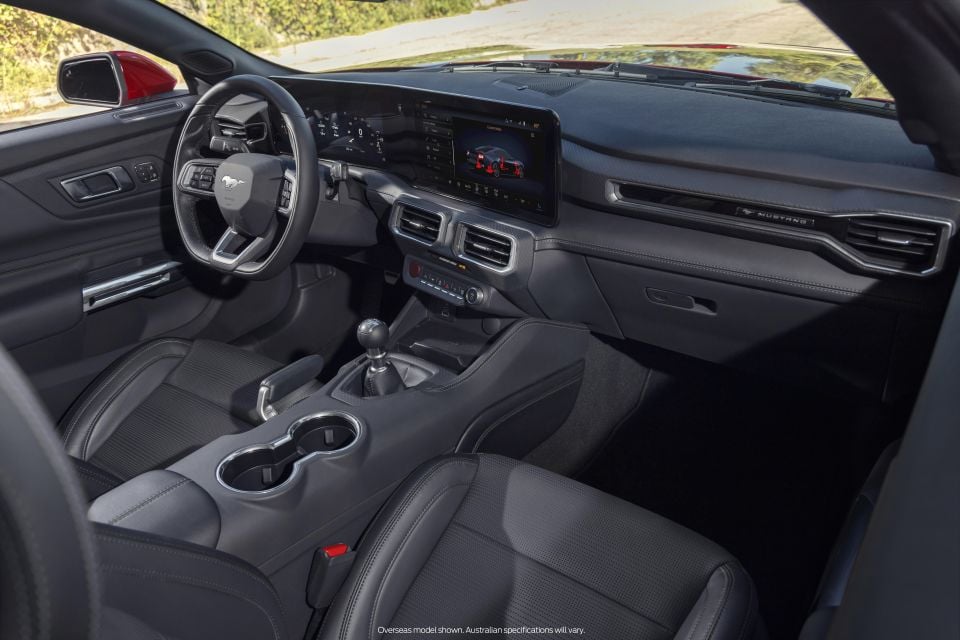
Ford says there will also be a new steering rack and a faster steering ratio.
The Mustang is set to receive a new generation safety suite featuring adaptive cruise control with stop/go, lane centring, evasive steering assist and reverse brake assist.
The vehicle will be underpinned by a version of the current sixth-generation platform which Ford says is the “best fit” for the car.
The new carryover suspension architecture will feature updates including new aluminium lower control arms and new rear linkages. Magneride adaptive damping system remains optional.

Ford has confirmed outputs for its US-market Mustang.
Currently, the Dark Horse tops the Mustang range with a naturally aspirated 5.0-litre Coyote V8 tuned to deliver 373kW of power — that’s 500 horses even — and 567Nm of torque to the rear wheels.
The flagship model feature a unique crankshaft and forged connecting rods in comparison to the V8. Ford says it will tune the Dark Horse for track work and says it will be able to sustain up to 7500rpm redline.
The GT also features a 5.0-litre Coyote V8 engine, albeit with 356kW and 563Nm.
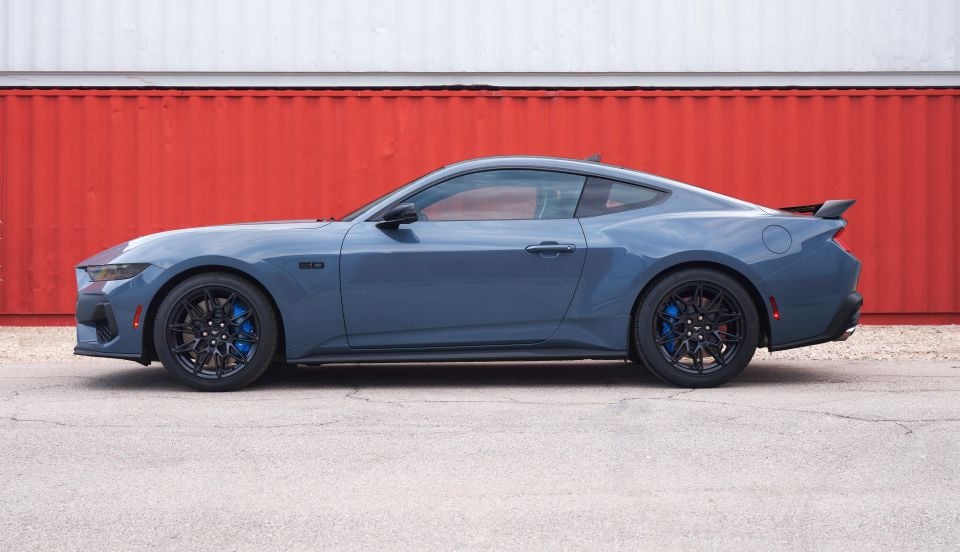
The optional active-valve performance exhaust boost numbers slightly to 362kW and 567Nm.
It’s worth noting the current engine in the GT only produces 339kW and 556Nm.
Both the Dark Horse and GT will keep their output figures regardless if you choose the six-speed manual or 10-speed automatic.
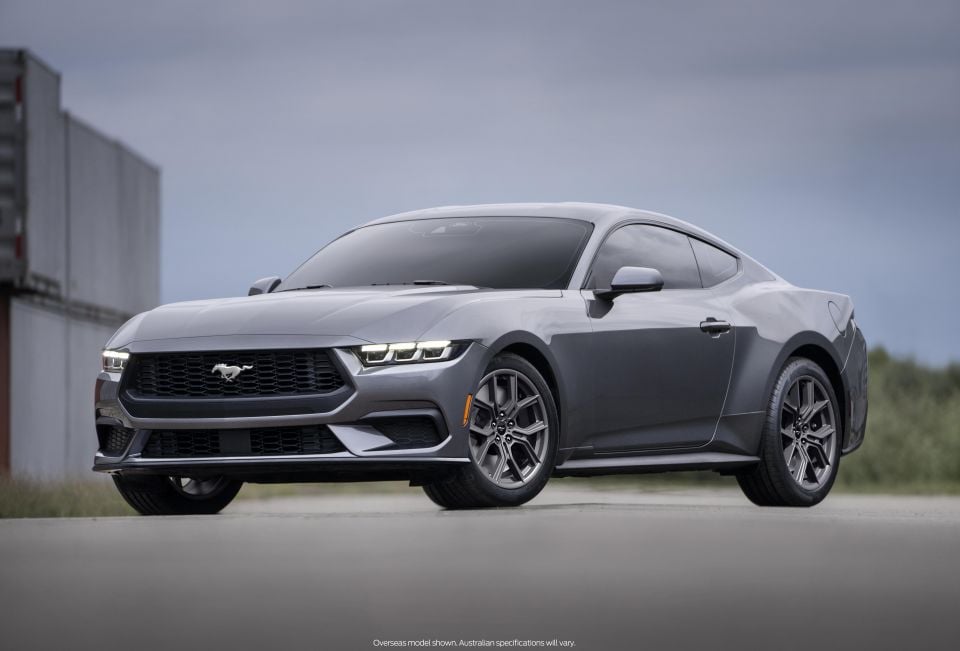
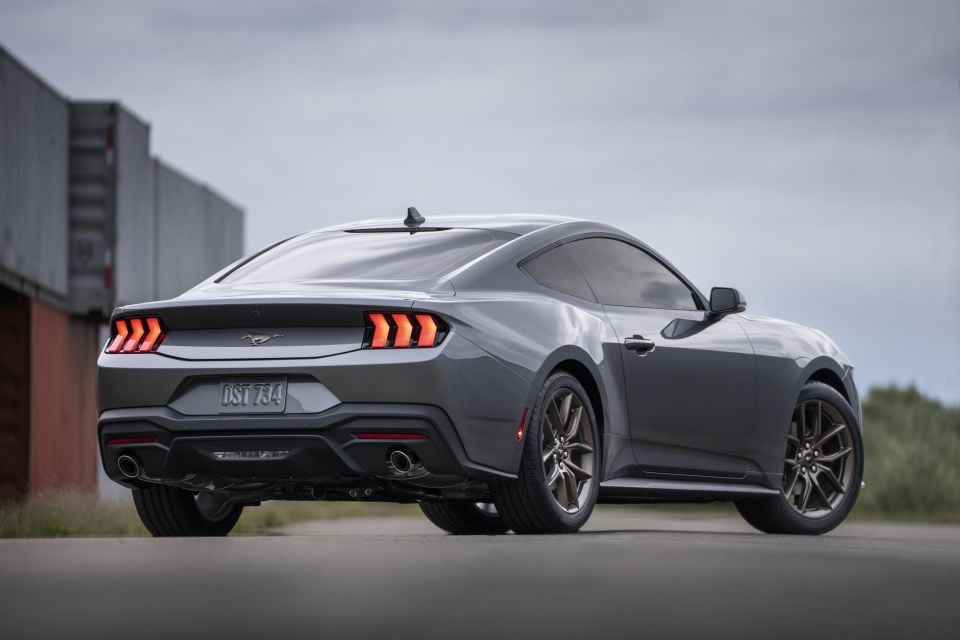
The entry-level EcoBoost has a 2.3-litre turbocharged four-cylinder engine under the bonnet making 235kW and 475Nm. It is mated to a 10-speed automatic transmission.
In addition to boasting port and direct fuel injection, a twin-scroll turbocharger, variable cam timing, and exhaust gas recirculation, the 2.3-litre mill has a new bore-to-stroke ratio.
Similarly to the GT, the Ecoboost is available with an optional active-valve performance exhaust system. It’s not clear if this will change the outputs.
MORE: Everything Ford Mustang
Go deeper on the cars in our Showroom, compare your options, or see what a great deal looks like with help from our New Car Specialists.
Jade Credentino is an automotive journalist currently based in Melbourne, Australia. Jade has had a chance to review a variety of vehicles and particularly enjoys SUVs. She enjoys traveling and going on road trips exploring Australia.


William Stopford
7 Days Ago


Damion Smy
19 Days Ago
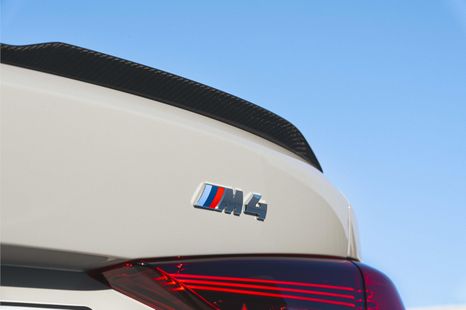

Damion Smy
21 Days Ago
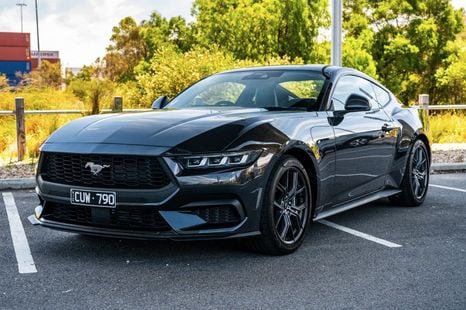

Josh Nevett
22 Days Ago
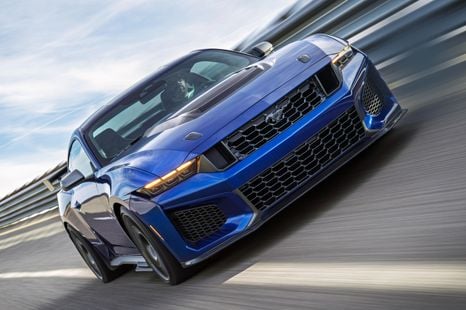

Marton Pettendy
25 Days Ago
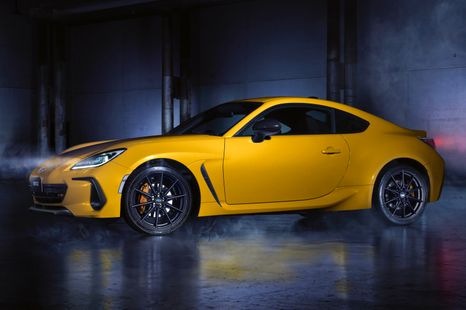

Max Davies
26 Days Ago
Add CarExpert as a Preferred Source on Google so your search results prioritise writing by actual experts, not AI.